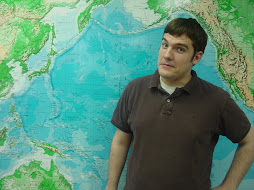Who's to blame? I think the fault can be equally spread through educators, administrators, policy makers, industry, parents, community organizations, and even kids. In the education field, we're still stuck preparing kids for the economy of the distant past; in some respects, a completely sedentary, agrarian, unskilled force economy; Not in every respect, mind you, but some; Science and ndustry and education need to improve communnication, so both know exactly what is needed from each other. A kid of my speech team did a persuasive speech on "the Millenials", the generation born from 1980 to 1995. Her speech argued that there's a sense of invincibility and entitlement along lack of work ethic and drive towards excellence fostered by parents many times and kids themselves;
While we could complain about the situation, the article offer steps to making progress in these deficiencies; The solution isn't to completely scrap our existing curriculum, but to incorporate necessary addition for the 21st century worker and citizen's develop, and putting learning more into the hands of the student simultaneously letting them practice real world skills. I liked how the article framed this new curriculum and instruction with the word literacy, which placed emphasis on high level thinking skills in the 3 R's(a misnomer), scientific, economic, technological, informational, visual, intercultural, and globalized fields; this doesn't negate much of the curriculum we already have, but extends it to technology and the real, flattened world. My mind is bursting with ideas of how I could incorporate this framework into my classes especially my speech class, which I consider more of a hybrid of three area; interpersonal communication, small group communication, and public speaking. I want to focus more on intercultural communication differences and have students do a project showing they can understand, appreciate, and adapt to these. I already have a small group communication unit with an extensive problem solving project at the end, but I can do so much more with it; I might include a unit about computer- mediated communication in as well.
Here are the struggle/challenges I see:
1. Assessments: Until we change out assessment practices, we're never going to realize the full potential of this new way of teaching and learning. The two approaches are like oil an water, and policy makers and the community like to see quantifiable data of progress; Unless we can convince both groups that they don't matter as much, as teaching students these real world skills, I don't see it reaching its potential. I think making content personally relevant to student where they have to use in real world settings will increase retention of knowledge and thus scores.
2. Motivation of Certain Students: Some students will still end being welders, farmers, beauticians, cashiers, and food service employees; How can we show them that the flat, digital world is relevant to them. Friedman cites some examples in his book, but a lot don't think they'll have to use extensive technology or collaboration or creation in their jobs.


No comments:
Post a Comment